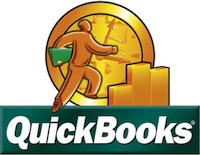If you earn an income as a blogger, you should think about keeping your accounts in order. Accounting, put simply, is to identify how much money you are making, how much you are paying out and how much profit or loss you have made. In other words, it encompasses the financial activities of your blog.
However, because there’s money involved, you must treat your blog as a business. All businesses whether small or large, use some necessary tools in order to maintain an efficient accounting system.
In the process of marketing a CPA study website, I was exposed to a lot of important facts about bloggers and business owners, and one area that really needs improvement is accounting.
 I will be sharing some accounting tips with you and looking at several accounting tools that will benefit you. This will enable you to have a better understanding of how you can make your blog account-friendly.
I will be sharing some accounting tips with you and looking at several accounting tools that will benefit you. This will enable you to have a better understanding of how you can make your blog account-friendly.
These 5 accounting tips will make life easier
Accurate record keeping
All financial transactions must be recorded.A record of all income and expenditure will enable you to see if you are making a profit or loss from your blog. It’s essential to keep an accurate, up to date income and expenditure record of all transactions. This could be income from freelance writing, guest posts, advertising or affiliates. Expenditure is money you spend on anything that involves your blog. That information will be needed for tax purposes and for your own records. The benefit of that is that you will be able to deduct the right amount for tax, and there might be some surplus money left over.
Most things are done on the computer but it’s also good to have paper records as a backup. Computers have a habit of crashing. If you don’t use an online storage or a memory stick, you could lose some vitally important documents. Buy a lever arch folder and insert dividers for expenses, income, bank statements and a list of all articles or posts you write. Staple your receipts on a blank A4 sheet of paper and make a note of what you purchased, with the date.
Create a budget for your blog
Keeping a budget for your bog is useful.It will help you keep track of your spending. In addition, budgeting will put you in charge of your spending, instead of your spending being in charge of you.
Calculate your tax and include it in the outgoing column in your budget. By reviewing your budget each month, you will see if your actual expenses match up with your budget.
Save a percentage of income from your blog to pay your taxes
Putting away a percentage of your blogging income each month, will reduce the amount you pay towards your annual tax bill. This will ensure that you have enough money to pay your tax bill when it’s due. Deducting 20% from your monthly income should be enough to cover your tax expenses. That’s a much better option than having to pay a large amount in one go. You could consult your accountant (if you have one) or a tax professional to get advice on the amount that’s right for you to save each month.
Learn basic bookkeeping or outsource to an accountant
Bookkeeping is the term used for recording your financial transactions. Businesses operate a bookkeeping system to keep a track of all the money that comes in and goes out. Bookkeeping will help you manage your blog’s cash flow, ensure that your bank and credit card statements are reconciled, identify profits and losses, maintain accurate records of your financial transactions and is also required by federal and local tax offices.
It’s a time consuming process, so you may prefer to outsource your financial dealings to an accountant, if you can afford it. They will take care of everything such as your financial statements, completing annual tax returns and advise you about your present and future financial dealings. They will also show you all the loopholes where you can save on taxes. All you will need to do is to provide your accountant with the relevant paperwork. It could be a wise investment to make.
On the other hand, you could complete a home study course and learn basic bookkeeping. There is the option of completing a correspondence course or an online course. If you wanted to gain a qualification, there are many accredited programmes that offer a diploma or certificate. Consider the cost, structure of the programme, time span, study resources and instructors or tutors available before making a decision as to whether the course is right for you or not.
Keep a separate bank account for your blog
Open a separate bank account for your blog and pay all your income straight into it. Try not to use cash to pay for anything you need to purchase. Use a credit card or check because you will need to have a record of all purchases. Keep your bank statements filed away safely in date order.
Don’t pay money earned from your blog into your personal bank account. You must keep the two separate. If not, you won’t be able to distinguish between the two and that could have an effect on your taxes.
Years ago, maintaining your accounts and balancing the books was a long drawn out process. However, we are now privileged to have computer softwares to make the job a lot easier, less time consuming and more enjoyable. Using these tools will require you gaining some knowledge. However, the rewards of being able to keep your accounts in order are worth the time you will spend learning any new accounting skills.
5 accounting tools for a smoother accounts experience:
Microsoft Excel is an electronic spreadsheet which is used to store financial data. It is often used as an accounting tool.It contains several built in formulas which are used for common tasks referred to as functions. The functions relay the calculations required to Excel. The spreadsheet is used to record income, expenditure and is able to calculate sales tax. It’s also able to work out bank reconciliations, monthly income statement and cash flow reports. This tool will enable you to record and manage your finances.
Microsoftoffers free basic online training to enable you to understand and use Excel. You can take it further and enrol on a training course, which will give you a comprehensive grasp of how to use Excel at a more advanced stage.
FreshBooks is for people who are not account savvy. It will take care of your bookkeeping. There are lots of benefits to using FreshBooks. Your financial information will be securely backed up by their data centre. You will be able to access your account from any online connection, no matter where you are. You can even use your iPhone to manage your accounts. Your expenses can easily be transported through a CSV or QBO file and sent straight to your accountant. It puts you in control of your finances as you’ll be able to keep a track on all your spending.
QuickBooks is a revolutionary computerised bookkeeping system. It’s easy to set up and to operate. It offers you online access to a live community of other QuickBooks users, accountants and others who are willing to educate you with their knowledge. It will enable you to organise your finances, keep track of your expenses,manage your cash flow, generates reports when you need them and save you precious time.
LessAccounting is innovative software which is ideal for people who do not like working with numbers. Imagine being able to put your expenses in categories so that you can easily trace them. This software also makes it possible to upload photos of your receipts for each expense. If you use your car for blogging business, it logs the trips and mileage. LessAccounting manages all your contacts, creates custom reports and even files them in date order. You can even use it to book photo sessions or appointments with other bloggers.
Outright is a free accounting software. However, you have the option to upgrade to a premium version. It’s got over 12,000 users and that number is growing. Outright shows you a visual breakdown of your expenses and taxes. It features a profit and loss bar graph and calculates taxes through a report. The pie chart compares your income to your expenses which makes it easier to keep tracks on your spending. At a glance you will see how much your monthly income is and even compare that to past reports.
By using some of the tips and tools in this article, your accounting experience should be more enjoyable. You will be able to streamline your paperwork, organise yourself more efficiently, free up more valuable time and be in control of your accounts. You will then be in a position to concentrate on taking your freelance writing and blog to the next level.
John Holt is an expert accounting writer for FastForwardAcademy.com.
Image credit: Accountant business woman with big calculator from Big Stock Photo



